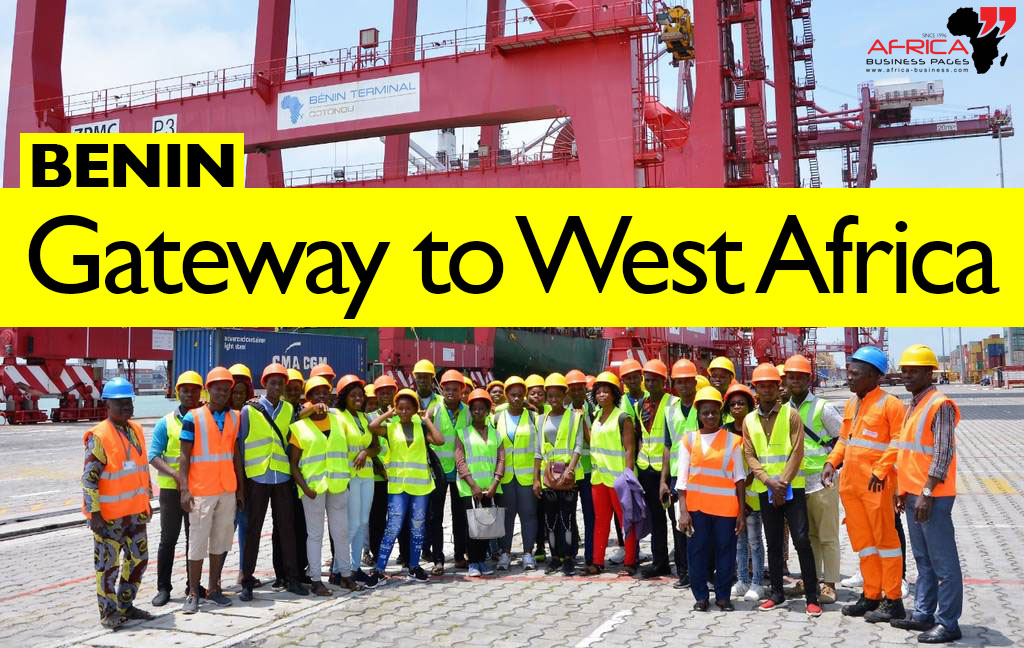Uganda Business Directory
Download the UGANDA BUSINESS DIRECTORY and contact importers in Uganda, exporters in Uganda, wholesalers in Uganda as well as companies...

Benin has emerged as a major transit point for goods destined for West African countries. Re-export trade in Benin consists in importing goods from all across the world and then export them to neighbouring countries especially Nigeria. Benin’s status as a distribution hub of the West African region goes back to the end of the 60’s during the Biafran war when goodsimported from the global markets were transported to Nigeria via Benin. However, in past few years, the dynamism of this trade has been greatly modified without necessarily reducing the volume of the traffic. A major portion of imports of textiles, second-hand clothings, second-hand cars and tyres is now being routed through Benin to meet the rising demand for these goods in Nigeria.
Benin’s re-export market is based on skirting the Nigerian protectionist policy
and avoiding high import taxes. Many of the goods
destined for Nigeria from Dubai or the Far East countries are consigned to import-export
companies based in Cotonou,
Benin. These import-export  companies
in Cotonou are registered with the Benin Chamber of Commerce and Industry, exchange
operations are conducted by banks in Cotonou,
goods pay the Beninese customs duties at arrival in the Cotonou port and sold on the
Beninese territory in accordance to
what had been declared to the Beninese customs.
companies
in Cotonou are registered with the Benin Chamber of Commerce and Industry, exchange
operations are conducted by banks in Cotonou,
goods pay the Beninese customs duties at arrival in the Cotonou port and sold on the
Beninese territory in accordance to
what had been declared to the Beninese customs.
In reality, the goods are actually bought in Cotonou by Nigerian wholesaler who have exchanged money for the CFAF on the parallel market in Lagos, Cotonou or other border markets to pay for their purchases. These goods are then given to a group of transporters who transport them to the border where they are often stored in depots on the Beninese side before being smuggled into Nigeria.
Once in Nigeria, the goods are mostly taken to Lagos where they are stored, for further distribution to the local markets. This thriving trade route is popular amongst Nigerian businessmen as it simply means hiring the services of the Cotonou import-export company.
On the other hand, for Beninese operators, this re-export route is highly rewarding activity that generates easy income. It is estimated that this re-export route generated approximately 30 to 40 billion CFAF in customs revenue each year, representing more than a third of customs revenue and about 15 per cent of total budget revenues.
In addition, these indirect imports into Nigeria also generate substantial revenue for services linked to import operations in Benin like ports, forwarding agents, banks, handling, etc. In fact, a large part of the gross profit margin of Nigerian wholesalers goes to Beninese operators for the various services rendered like storage, transport, parallel currency exchange markets, customs etc.
As a result, despite the fall in re-export business linked to the lifting of the prohibitions on numerous products, re-export to Nigeria remains one of the Benin’s major trade activities.
However, Benin’s economy is chiefly based on agriculture. Cotton accounts for 40 per cent of GDP and roughly 80 per cent of official export receipts. The country also produces textiles, palm products, and cocoa. Corn, beans, rice, peanuts, cashews, pineapples, cassava, yams, and other various tubers are grown for local subsistence. Most small businesses are privately owned by Beninese citizens, but some firms are foreign owned, primarily French and Lebanese.
Currently, trade between Benin and Dubai is relatively small, but trade between the two is growing steadily. Dubai-based businesses are interested in promoting their products and services with Benin in order to capture markets in Benin’s neighbourhood, particularly Nigeria, Niger, and Burkina Faso, which receive large amounts of their imports through the port of Cotonou.
Dubai has been exporting a large variety of goods to Benin including automobile spare parts, tyres, batteries, textiles, used machinery, foodstuff, computer hardware, lubricants, perfumes, cosmetics, stationery items etc.
Most trade between Nigeria and Dubai is also routed through  Benin
to avoid official red tape. Nigeria has very stringent import procedures. Imports to
Nigeria, regardless of volume and whether containerised or non-containerised are subject
to
mandatory pre-shipment inspection to verify the price, the quantity and the quality of
the merchandise. The physical inspection is
intended to determine whether goods conform to contractual requirements. The Nigerian
government will send a completed, modified
Form M and a copy of the pro forma invoice to the inspection agency. Upon receipt of
these documents, the inspection agency
will contact the seller to request additional information about the shipment and to
arrange for inspection of the goods,
however the seller bears the ultimate responsibility for seeing that goods are
inspected.
Benin
to avoid official red tape. Nigeria has very stringent import procedures. Imports to
Nigeria, regardless of volume and whether containerised or non-containerised are subject
to
mandatory pre-shipment inspection to verify the price, the quantity and the quality of
the merchandise. The physical inspection is
intended to determine whether goods conform to contractual requirements. The Nigerian
government will send a completed, modified
Form M and a copy of the pro forma invoice to the inspection agency. Upon receipt of
these documents, the inspection agency
will contact the seller to request additional information about the shipment and to
arrange for inspection of the goods,
however the seller bears the ultimate responsibility for seeing that goods are
inspected.
The owner or agent of every ship intending to enter any Nigerian port is required to
supply certain information
concerning the ship and its movements to the Nigerian Port Authority at least two months
before departure of the ship for
Nigeria. Ships entering Nigerian ports are required to pay fifty percent of the customs
duties payable on the cargo to be unloaded before they will be allowed to berth.
All these cumbersome regulations have forced Nigerian businesses to route their imports through the port of Cotonou, In fact, many countries in West Africa use the port to import goods. Some neighbouring countries of such as Burkina Faso, Central Africa and Chad have even constructed their own warehouses to store their goods at Cotonou port.
Previous NextDownload the UGANDA BUSINESS DIRECTORY and contact importers in Uganda, exporters in Uganda, wholesalers in Uganda as well as companies...
Lake Victoria Free Trade Zone in Uganda offers a perfect business venue for capturing markets in East Africa. Business people interested in doing business in a...
An unprecedented surge in demand for consumer goods makes Uganda a lucrative market in Sub-Saharan Africa and there is a mood of optimism and a belief that...
Uganda Business Council (UBC) aims to further strengthen trade and business ties between Uganda and Dubai by helping bring together the business communities...
Download the UGANDA BUSINESS DIRECTORY and contact importers in Uganda, exporters in Uganda, wholesalers in Uganda as well as companies in Kampala, Entebbe and Jinja...
Traders in Uganda are getting together to combat rising costs of transportation between Mombasa and Kampala. The landlocked country of Uganda receives most of its...

